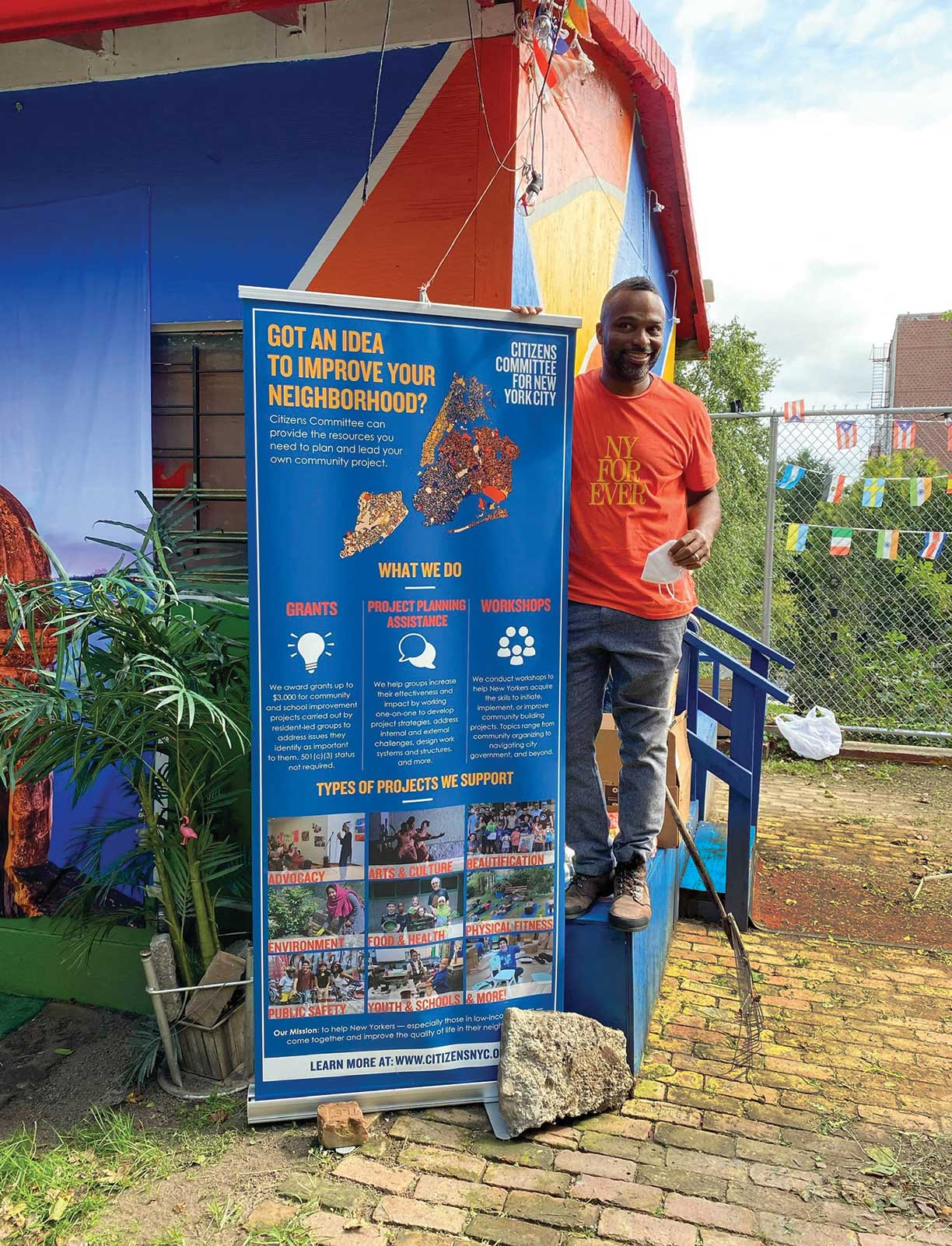Rahsaan Harris ’95 Is Building Community in NYC Neighborhoods
The former Peace Corps volunteer is now CEO of Citizens Committee for New York City
Since he was a kid growing up in Piscataway, New Jersey, Rahsaan Harris ’95 has understood the power of community engagement. His mother, a public-school teacher and the owner of a daycare center that ran an after-school tutoring program, “helped educate half my town,” Harris says. His father was a longtime public administrator, educator, and social-justice advocate.
“I was taught around my kitchen table that community matters,” Harris says.
That mindset proved particularly helpful when Harris was named CEO of Citizens Committee for New York City, a nonprofit founded in 1975 that aims to improve the city’s neighborhoods by providing small grants and services to local businesses and organizations. He started his new job March 16, 2020, just days after New York went into lockdown.
“Starting in the middle of crisis was scary,” Harris says. “But it was also humbling because it was a real opportunity to make a difference. The need was so real. We weren’t intellectualizing it: We saw it on our doorsteps.”
Despite his background, Harris did not follow a straight path to philanthropic work. Originally, he thought he would become a doctor, and he majored in ecology and evolutionary biology at Princeton. But a stint with the Peace Corps changed his mind. “Being able to fix situations in people’s lives from the spiritual and social standpoint is really what drew me in,” he says.
Shifting gears, Harris earned a master’s degree in nonprofit management from New York University and a Ph.D. in urban and public policy from The New School. (Harris also holds a master’s degree in high school science education from Columbia’s Teachers College.)
He says his science training has allowed him to bring data and analytics to his work. “Coming up with hypotheses, testing them, and then being able to articulate what you’ve learned, as well as understanding the shortcomings of your methodology and certain blind spots that you might’ve had … are all things that I keep in mind,” he says.
Early in the pandemic, as businesses, schools, and restaurants closed, so did critical support services like halfway houses and drug-addiction centers, leaving vulnerable residents scrambling for necessities.
People “needed access to financial assistance, food assistance; they needed mental-health and physical-health resources; they needed support for the elderly,” he says.
The organization pivoted to providing these essentials in areas hardest hit by the pandemic. It also launched CitizensNYC: LIVE, a series of conversations on Facebook and LinkedIn with local elected officials and community stakeholders that offered information on where to be vaccinated and how to vote using the city’s new ranked-choice ballots.
Citizens Committee gave away approximately $2.3 million through two small-grant programs in fiscal years 2020 and 2021. The first program provided up to $5,000 each to neighborhood leaders for improving their neighborhoods; the second program awarded up to $10,000 to neighborhood businesses to help them stay afloat and navigate through the pandemic. For example, it helped local barbershops and restaurants pay bills, reconfigure their service models to adhere to new COVID safety protocols, and improve their marketing efforts. Citizens Committee also facilitated introductions to local legislators, key institutions, and large organizations that could offer help and advice. The grants have targeted businesses owned by people of color, women, and immigrants, as they had a harder time accessing the Paycheck Protection Program (PPP) loans offered by the federal government.
Harris says the past 18 months have put his childhood ideals into action.
“It’s not necessarily glamorous, but I think history is made by folks that decide to persist even in the midst of adversity,” he says. “We have an opportunity to decide what the history books are going to say about [us] in this moment. It just matters that I put one foot in front of the other.”












No responses yet